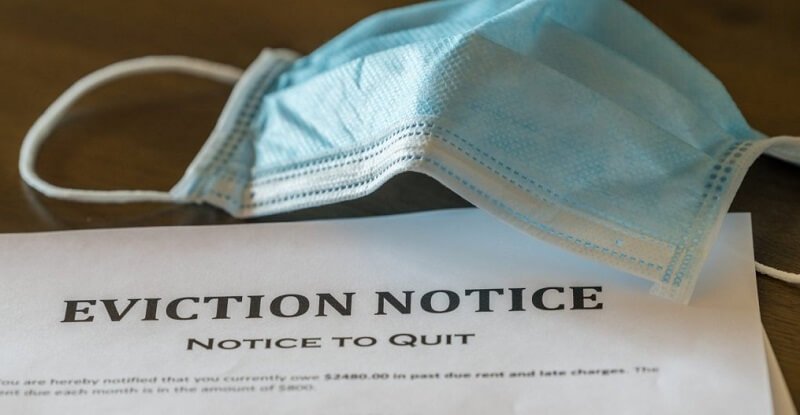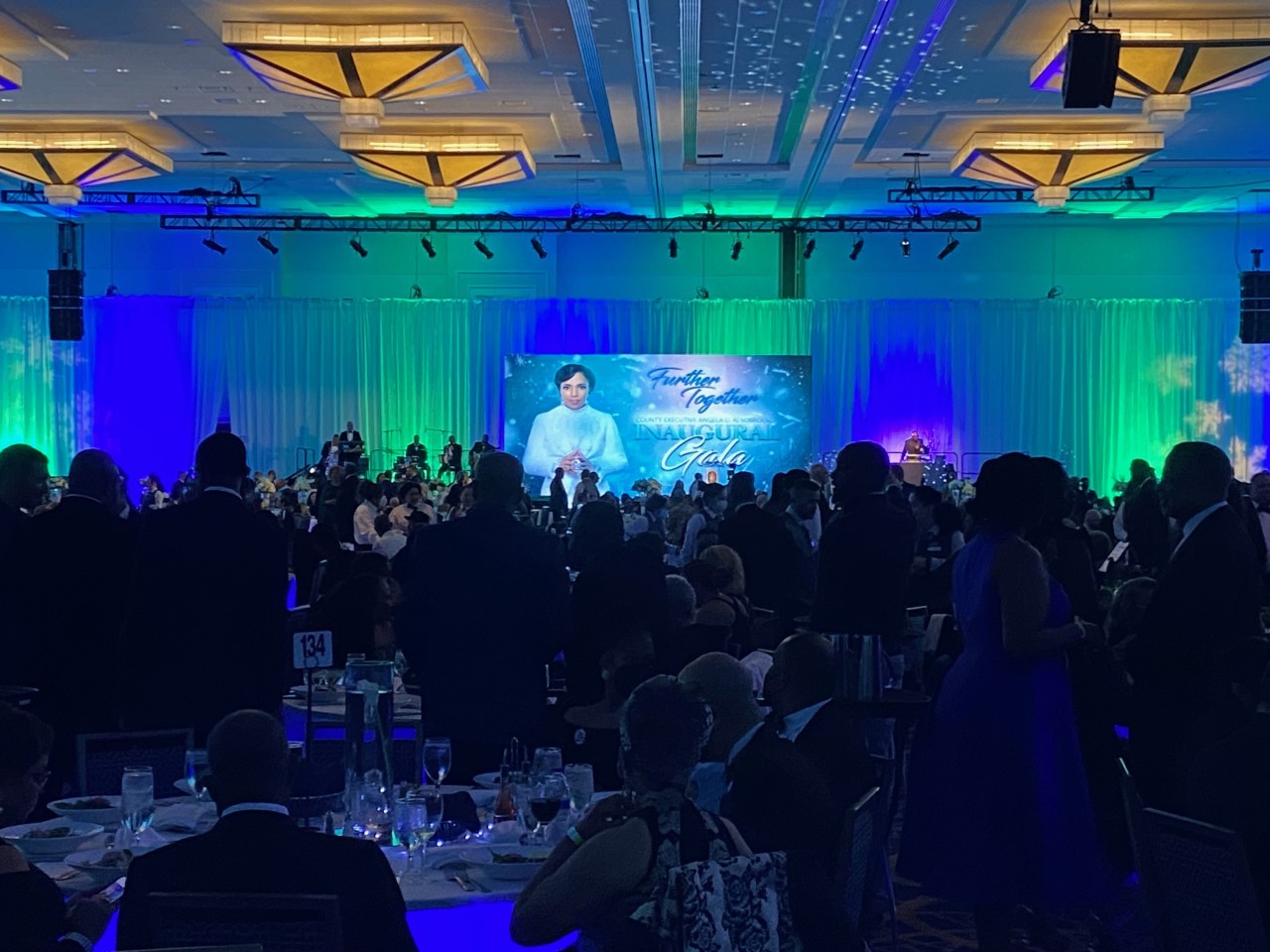Evictions Lower Than Pre-Pandemic Levels But Could Climb This Year, Judge Says

Failure to pay rent eviction filings remain lower than pre-pandemic levels, District Court of Maryland Chief Judge John P. Morrissey told lawmakers last week — but other types of eviction filings are higher than they were before the pandemic.
Failure to pay rent filings are the most common type of eviction filing in Maryland. There were more than 59,000 failure to pay rent filings in December 2019 alone. The number of failure to pay rent eviction filings last month dropped to 23,183.
A mix of federal rent relief funding and court shutdowns have led to the lower number of failure to pay rent filings, Morrissey told members of the House Judiciary Committee at a virtual briefing last week.
Evictions have also remained lower than pre-pandemic levels: there were 22,589 in the 2019 fiscal year, and 5,546 in the 2021 fiscal year.
But the number of evictions is climbing.
Morrissey said there were 4,231 evictions in the first half of this fiscal year. And there were 558 evictions in December as opposed to 378 in December 2020 and 1,114 in December 2019.
Morrissey noted that court operations are currently scaled back because of the highly contagious omicron variant of COVID-19, and said while failure to pay rent cases can still be filed, he doesn’t expect those cases to move forward until at least March 7.
While new failure to pay rent cases aren’t moving forward, Morrissey said that other types of evictions and eviction filings that were already in the pipeline before the courts curtailed their operations are.
In addition to failure to pay rent, there are three other types of eviction filings in Maryland: “Tenant holding over” cases are filed when a tenant remains on a property after their lease expires, “breach of lease” can occur when a tenant violates provisions of a lease, and “wrongful detainer” can occur when someone who isn’t on a lease is living at a property.
Breach of lease filings and tenant holding over filings, which are less numerous than failure to pay rent filings, remained higher than pre-pandemic levels in the second half of 2021, according to Morrissey’s presentation. Tenant holding over filings weren’t covered under federal and state eviction protections for tenants that expired last year, and have seen a consistent uptick throughout the pandemic.
There were 247 breach of lease filings in December 2021 compared with 122 in December 2019, according to Morrissey’s presentation, and 446 tenant holding over filings compared with 221 in December 2019.
Gregory Countess, the director of advocacy for housing and community economic development at Maryland Legal Aid, said tenant holding over filings have at times been used as a “substitute” by landlords when they can’t file a failure to pay rent case.
And although Morrissey said he hasn’t yet seen the projected “eviction tsunami” that advocates warned of early in the pandemic, Countess said that tsunami is simply “slow-moving.”
With the 2022 session underway, lawmakers are set to consider reforms aimed at protecting tenants from eviction. Some of those proposed reforms include temporarily delaying an eviction when a tenant can prove they’ve applied for rent relief. Federal rental assistance funding has at times been slow to get to tenants and landlords, and fair housing advocates say some tenants have faced eviction over those delays.
“I have seen several clients where the landlord has thrown in the towel and they’re not willing to wait anymore and they’re starting to proceed with eviction,” Melissa Chiasera, a staff attorney with the Pro Bono Resource Center of Maryland, told lawmakers.
Advocates for landlords again underscored court backlogs: Erin Bradley of the Apartment and Office Building Association of Metropolitan Washington said the current time between nonpayment of rent and an eviction moving forward “may right now exceed more than a year.”
While landlord advocates have argued that the lengthy backlogs amount to a de-facto moratorium on evictions, advocates for tenants say relying on court backlogs alone isn’t a sustainable way to prevent evictions during the pandemic — particularly with evictions still moving forward in places like Baltimore.
Lawmakers are also considering raising court filing fees and summary ejectment surcharges to fund attorneys for people facing eviction. Although a bill to expand access to counsel passed the General Assembly last year, a separate measure that would’ve raised court fees to pay for it failed to pass before lawmakers adjourned.
Leah Tulin, special assistant to Attorney General Brian E. Frosh (D), told lawmakers at a meeting last year that low court filing fees had created a “serial eviction filing problem” in Maryland even before the pandemic.
Meredith Girard, the executive director of Mid-Shore Pro Bono, said having access to counsel in an eviction case “always leads to better results for the client.”
Grason Wiggins of the Maryland Multi-Housing Association said that lawmakers shouldn’t make the filing fee universally unrecoverable for landlords, pointing to surrounding jurisdictions like Washington D.C. and Delaware that allow landlords to recover the filing fee. He argued it should be up to judges to decide whether the landlord can recover the eviction filing fee from the tenant.
According to the National Equity Atlas, which estimates rent debt based on U.S. Census and Treasury data, there are an estimated 111,000 households behind on rent in Maryland, and 79% of tenants behind on rent in the state are people of color.




 Creative Commons Attribution
Creative Commons Attribution